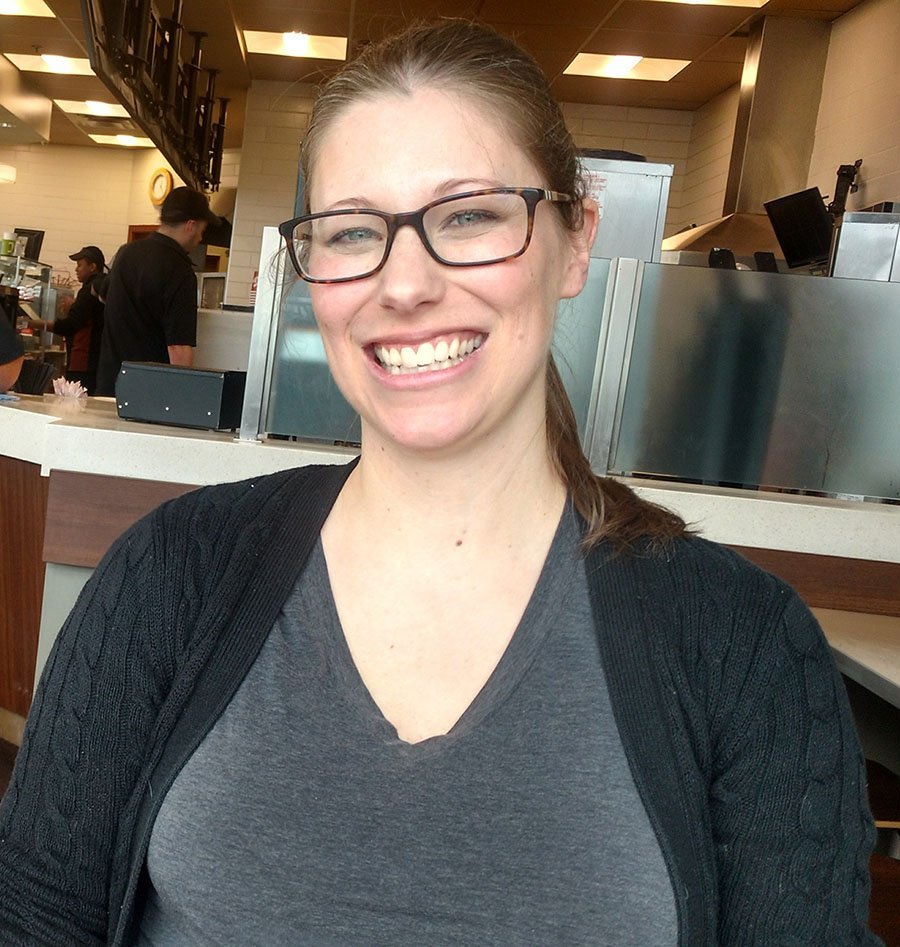
Renata Isopo
Neuroscience research suggests that learning outcomes are not solely determined by the environment. Biological factors play an important role in accounting for differences in learning ability between individuals. The emerging field of Educational Neuroscience presents opportunities as well as challenges for education. It provides means to develop a common language and bridge the gulf between educators, psychologists, and neuroscientists.
Laval resident Cindy Hovington, PHD in Neuroscience from McGill University, recipient of six awards and author of eight journal articles, has impressive credentials in the field.
This is Dr. Hovington’s fascinating story as told to TLN.
Tell us about your educational background.
I am a doctor of Philosophy, Neurology, and Neurosurgery. I graduated McGill University in 2013. My thesis was based on Defining Persistent Negative Symptoms and Identifying their Neurocognitive and Neuroanatomical Correlates. I also completed a Post- Doctoral Fellow at McGill in Education in 2013. And, I was also accepted into Harvard. In 2008, I attended Queen’s University in Kingston, Ontario I completing a Master’s in Rehabilitation Science. I also attended Concordia University in 2006, obtaining a Bachelor of Science degree in Clinical Exercise Physiology.
You were part of Brain Reach at McGill. What is it and what does it lead to?
It’s an integrated program in Neuro science. I created Neuro-science-based presentations for young students in collaboration with committee members. I taught the program and worked with grade 4 and 5 students in English and French schools on a monthly basis.
Simply stated, Neuro education is a nascent discipline that blends the collective fields of Neuro science, psychology, cognitive science, and education to create a better understanding of how children learn and how this can be used to create more effective teaching methods, curricula, and educational policy. This interaction is already opening critical new dialogues between teachers, administrators, school boards, parents, and brain scientists.
Education is about enhancing learning and neuro science is about understanding the verbal process in learning. This common ground suggests a future in which educational practice can be transformed by science, although merging neuro science with education is rather new — about 15 years.
What is your greatest accomplishment?
I launched the “Curious Neuron” website last year because learning is through curiosity and neurons must be stimulated in order to learn, thus the name. Curious Neuron discusses different aspects of the brain through articles and discussion groups composed of various professionals. I’m the only neuro scientist on the team, which includes psychologists, psychiatrists, counselors, and teachers. We’re international, 70 countries visit the website. We get instant feedback from Instagram, etc. However, research changes rapidly; after six months, you’re out of the loop, and then you can’t get back in if you don’t keep up. It’s a tough job.
What are your objectives with Curious Neuron?
To keep building our team as a huge resource for parents, giving them the tools for easy access to activities, with articles backing the activities. For example, what is homework bringing to children? Executive Functions such as organization and planning, and attention skills. Not born with these skills, we have to develop them. The lower the skills, the more you struggle in school. Extensive information is offered to parents, teachers, counselors, and others who trouble shoot different intellectual areas. It’s a great aid.
You have two lovely pre-school children and another on the way. How do you teach or interact with them?
There’s absolutely no screen time and no battery operated games for them. They learn through play. It’s an important way of bonding. They are given blocks, marbles, paper, and coloring books to practice gross and fine motor skills. Kids don’t need much since they’ll discover how to play through independence. They create their own imaginative games.
Do you have any advice for parents and schools?
Be more mindful about brain functioning behavior response. Be aware of the environment and how quickly brains develop. The environment plays a huge role and quickly changes the architecture of your brain, particularly 0-5 years old. The brain makes connections and they are pruning. Explore as much as possible – music, languages, dance. Don’t create a mundane environment. Teachers have to be aware of aspects of brain functioning such as exam anxiety, attention span. Don’t have expectations that can’t be met. Create the foundation to build cognitive skills, brain skills that will help in school. Feedback on grades where improvement needs are essential..
How did you get here?
I graduated Laval Catholic High School in 2000. Ironically, I struggled with all my Sciences and that was a problem because that’s where I wanted to be. The system made it impossible for me to get into those courses because I wasn’t achieving the marks. I didn’t give up my desire because that’s what I loved and that’s where I wanted to be, and that’s where I am now.
How did it turn around? What is your priority? Who’s your hero?
Strangely, I also struggled in CEGEP to the point where I was pulled out. Then something just clicked-changed. I figured myself out. I did one year of Developmental Science at Dawson College — I couldn’t get into it in high school but I did here, determined to get into Health Sciences. The rest is history. I also started volunteering with researchers, sparking my interest and I had a strong drive to continue into the field. My priority is family. My mom is my true hero, my brother, my uncle and my grandparents are my angels.
Do you remember your quote in Laval Catholic High School’s 2000 Yearbook? Your last words to classmates?
Yes. “It’s not what happens in your life, it’s what you do about it. A smile is your most powerful weapon in life and remember angels are everywhere.”














